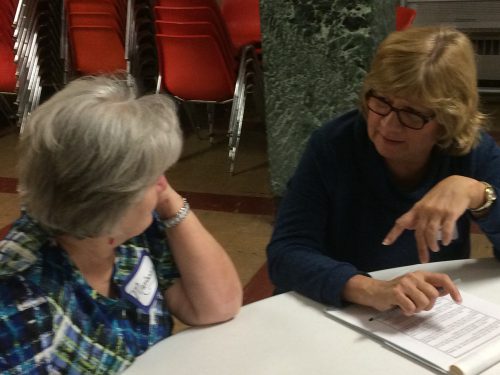Overcoming Polarization
PEP Newsletter
Ideas For Your Parish
______________________________________________________________________ December, 2022
Summary Report

In the Fall of 2021, the US Catholic bishops participated in the world-wide Synod process. Although Pope Francis has extended the deadline for another year, the Bishops Conference has now published the results from the information gathering phase entitled, “National Synthesis of the People of God in the US for the Diocesan Phase of the 2021-2023 Synod.” (usccb.org/synod)
Enduring Wounds
An estimated 700,000 people participated in the diocesan phase of the Synod in the United States. “Those who shared their stories,” the report stated, “especially those who participated in small group sessions, stated that they felt listened to by the Church for the first time.” (p. 4) One wound people endured was the continual effects of the sexual abuse crisis. “Trust in the hierarchy of the Church is weak,” people proclaimed, “and needs to be strengthened..” The misuse of power related to the abuse of innocent victims and keeping this hidden from public view “had a compounded effect on priests and lay ministers’ willingness to develop closer relationships with the people they served due to a fear of being misinterpreted or falsely accused.” (p. 5)
Another wound people mentioned was the experience that the Church is deeply divided. The report said, “Sadly, celebration of the Eucharist is experienced as an area of division within the Church. The most common issue regarding the liturgy is the celebration of the pre-Conciliar Mass. . . Many felt that the differences over how to celebrate the liturgy sometimes reach the level of animosity. People on each side of the issue reported feeling judged by those who differ from them.”
A third wound was the lack of unity among the US bishops, as well as individual bishops with the pope himself. “This perceived lack of unity within the hierarchy seems to, in turn, justify division at the local level. People at both ends of the political spectrum have set up camp opposing the ‘others,’ forgetting that they are one in the Body of Christ. Partisan politics is infiltrating homilies and ministry, and this trend has created divisions and intimidation among believers.” (p, 5)
Yet another wound is that of marginalizing individuals and groups, keeping them alienated and looking in from the outside. Some who are on the fringe are those who lack social or economic power, such as migrants, ethnic minorities, the homeless and undocumented, people with disabilities or mental issues, those suffering from various addictions. Also included in this category are women whose voices are frequently marginalized in the decision-making processes of the Church. “Women on parish staffs said they felt underappreciated, underpaid, not supported in seeking formation, worked long hours, and lacked good role models for self-care.” (p. 6) Others who felt on the margins of the Church included LGBTQ+ communities, the divorced or those who have remarried without an annulment or were civilly married.
In response to these and other areas of alienation, the reported stated, “Throughout the synodal process, it was evident that most participants genuinely believe that support for one another is essential – laity and clergy; Churched and unchurched, and those in need of healing.”
A Welcoming Church
“The most common desire . . . was to be a more welcoming Church where all members of the People of God can find accompaniment on the journey. . . People want the Church to be a home for the wounded and broken, not an institution for the perfect. They want the Church to meet people where they are, wherever they are, and walk with them rather than judging them; to build real relationships through care and authenticity, not superiority.” (p. 7-8) The report stated, “More work is necessary to welcome diverse cultural and ethnic com-munities. . . Rather than divide us, our diversity should be a source of strength. . . age, race, life experience.”


